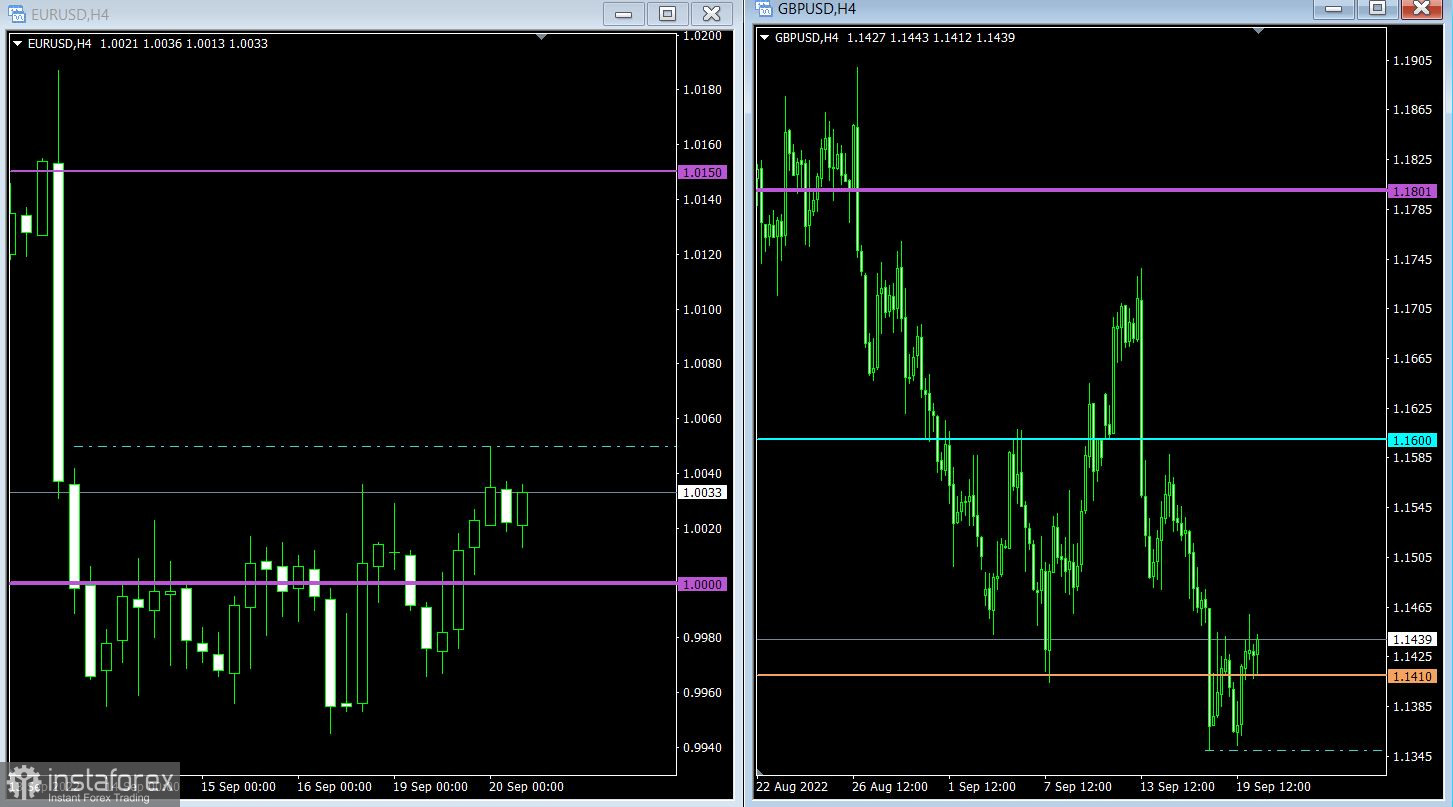We can say that the latest inflation data in the United States made the market believe that the Federal Reserve System will raise the interest rate by as much as 100 basis points. Everyone seemed to be doing nothing but convincing everyone around them of this. But it seems that everyone involved has finally realized that, despite the nature of the data, inflation in the United States is still declining for the second month in a row.
Consequently, the Federal Reserve has no reason to raise interest rates on such a large scale. This means that tomorrow, we expect a planned increase in the rate by only 75 basis points. This is also quite a lot, but not such a strong increase that everyone around them has set up.
It was this revision of expectations that caused the return of the euro above parity, which pulled up the pound. And if we take into account that the macroeconomic calendar is still empty and will remain so until tomorrow's meeting of the Federal Open Market Committee (FOMC), then the market will most likely remain in the area of current values. Although certain fluctuations caused by various guesses and arguments in the media will be observed, their scale will be quite modest. And most importantly, they will be of an exceptionally short-term nature.

The euro showed rising interest against the dollar, during which it jumped to the value of 1.0050. This is the primary signal of a possible change in trading interest after a long stagnation along the parity level. In order for the signal to be confirmed, the quote needs to stay above the control value of 1.0050 for at least a four-hour period. Otherwise, the probability of resuming the amplitude course is high.
The GBPUSD currency pair has a similar movement, but in this case, the price rebounded from the local low of the past week at 1.1350. The next round of growth is expected after the price holds above 1.1450. Otherwise, the formation of an amplitude within the boundaries of 1.1350/1.1450 cannot be ruled out.





















